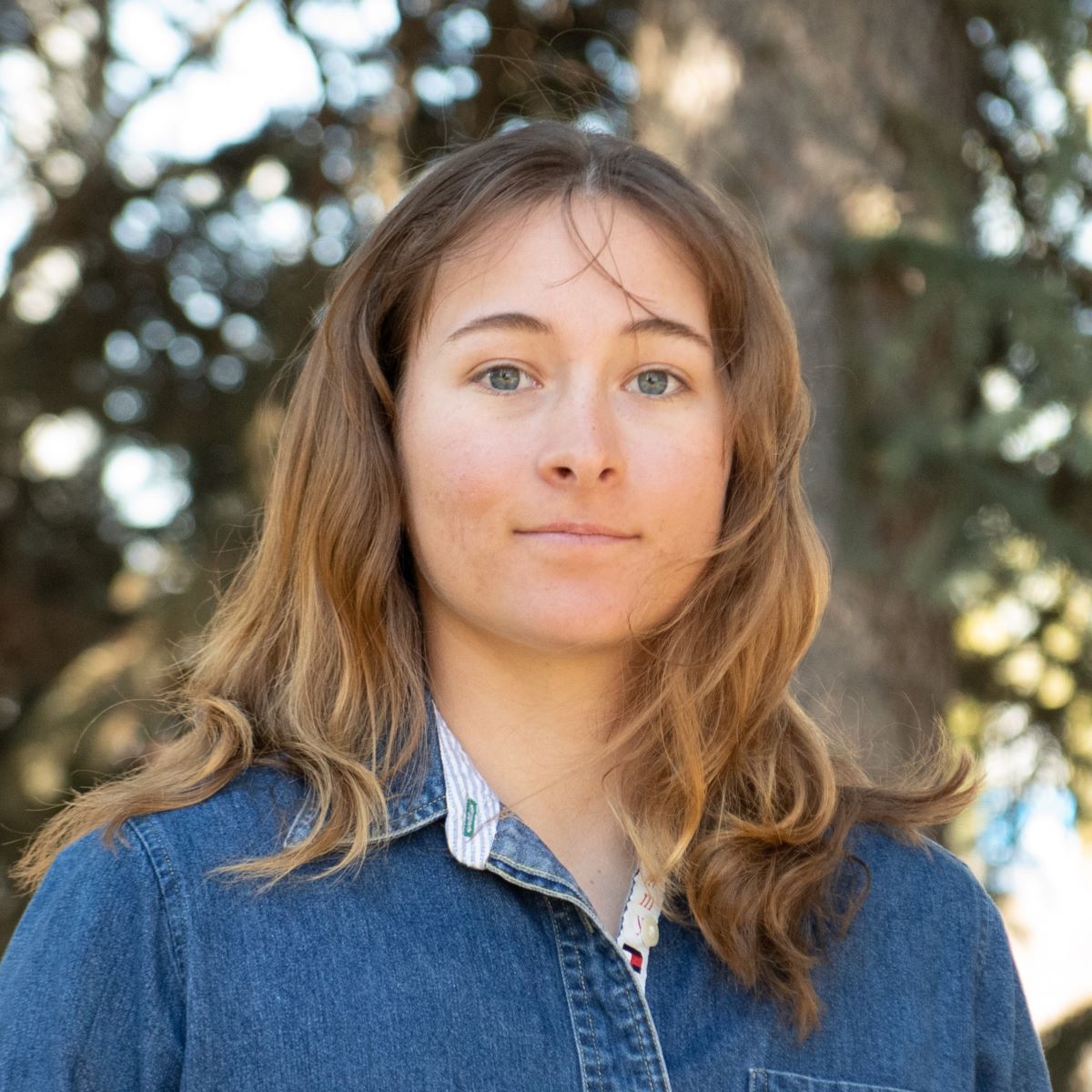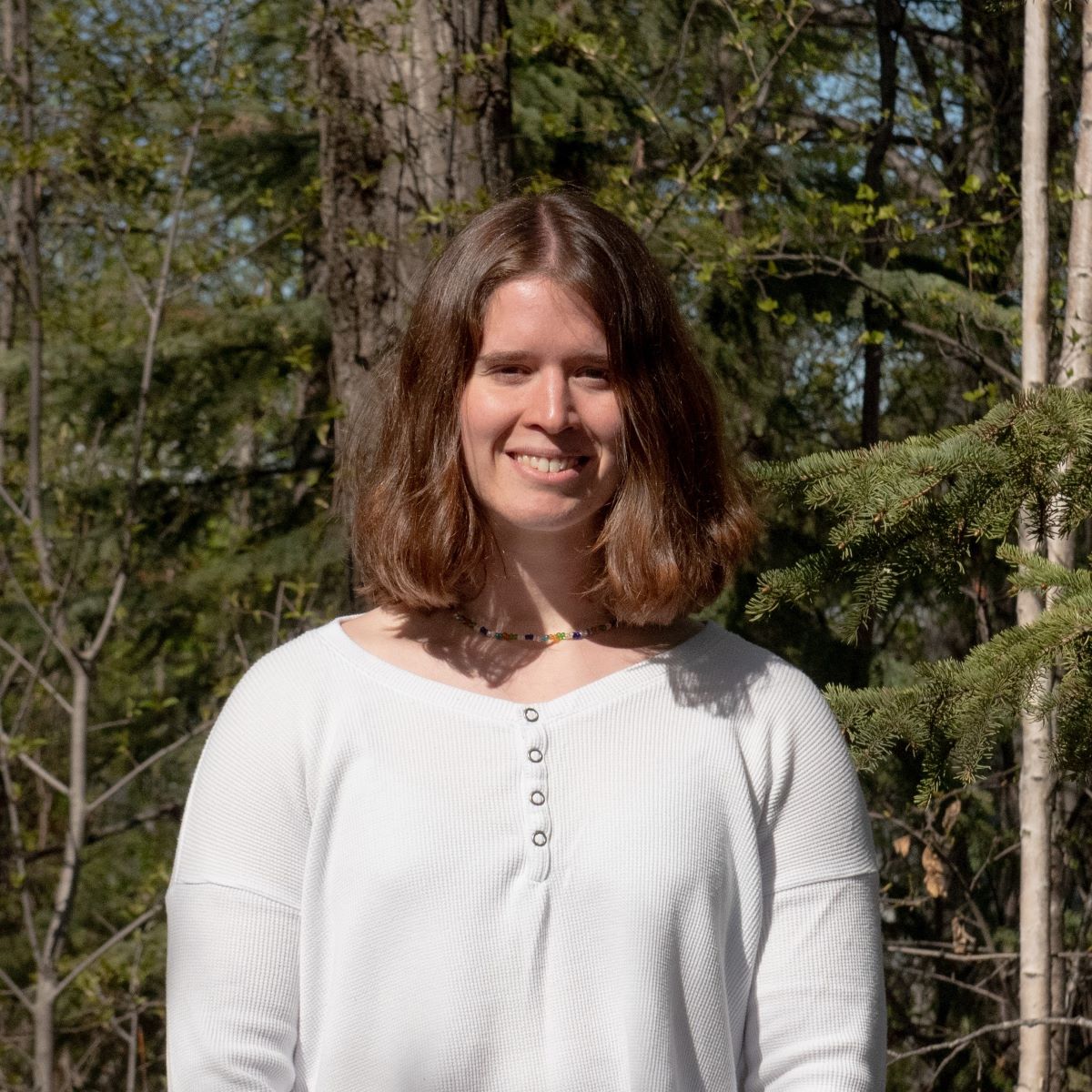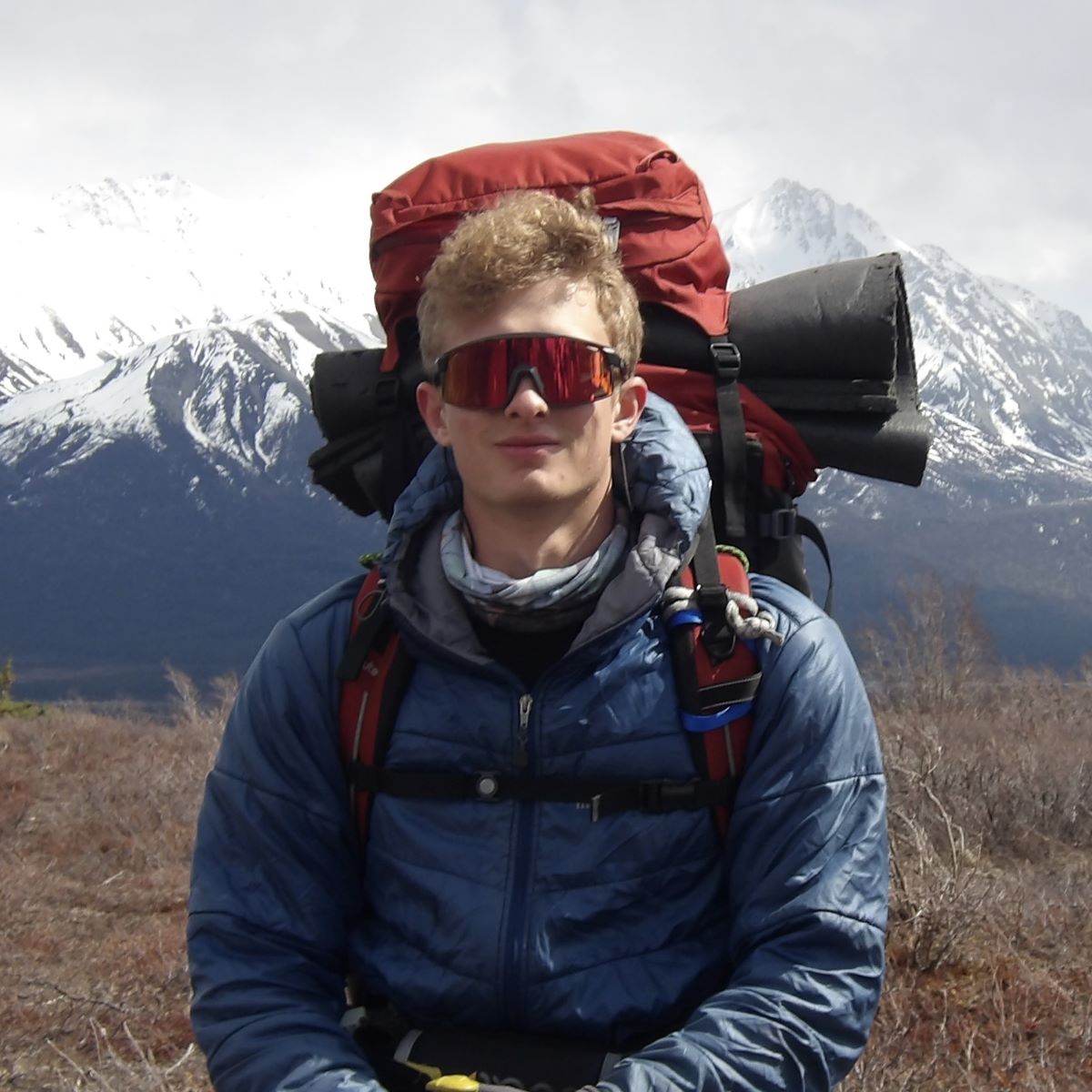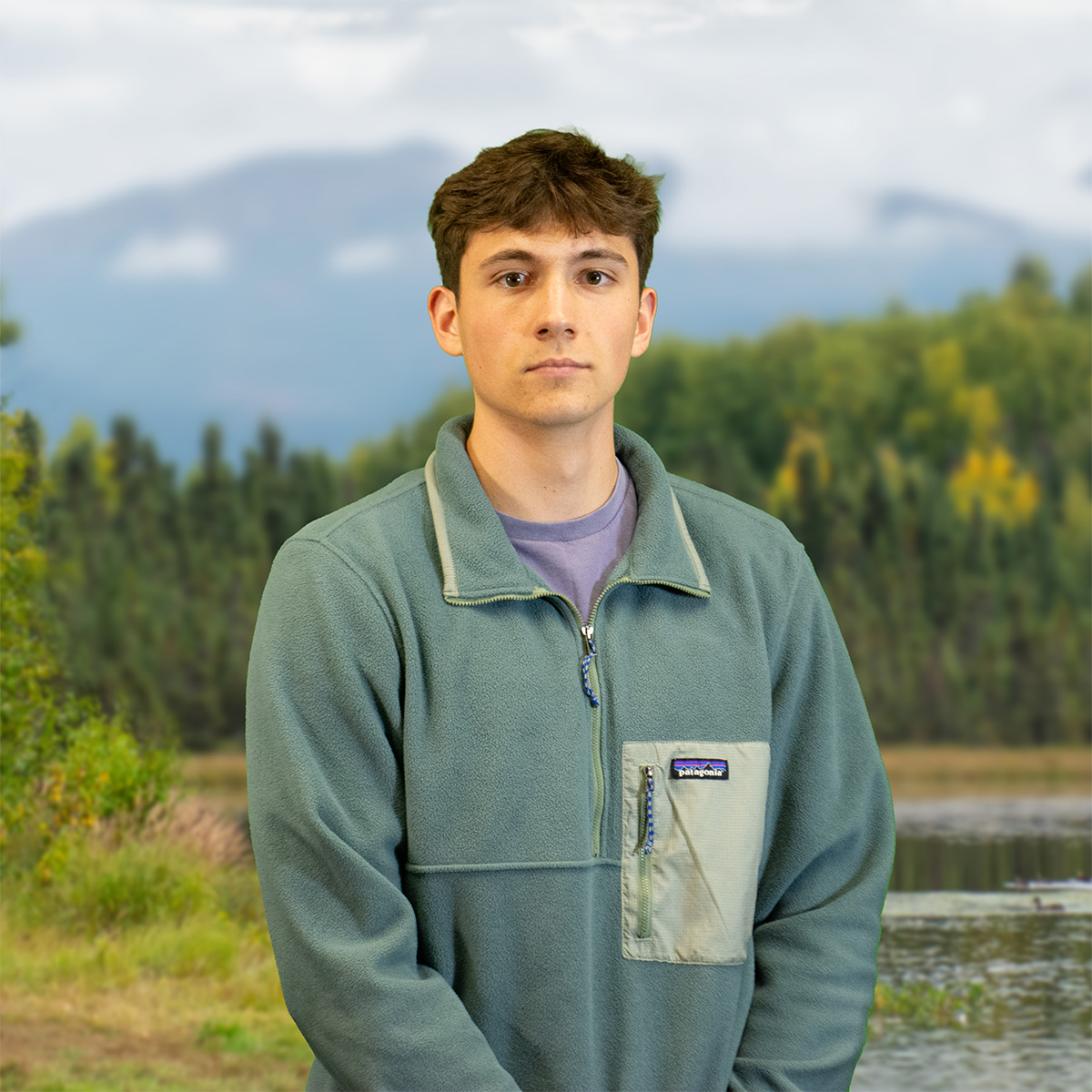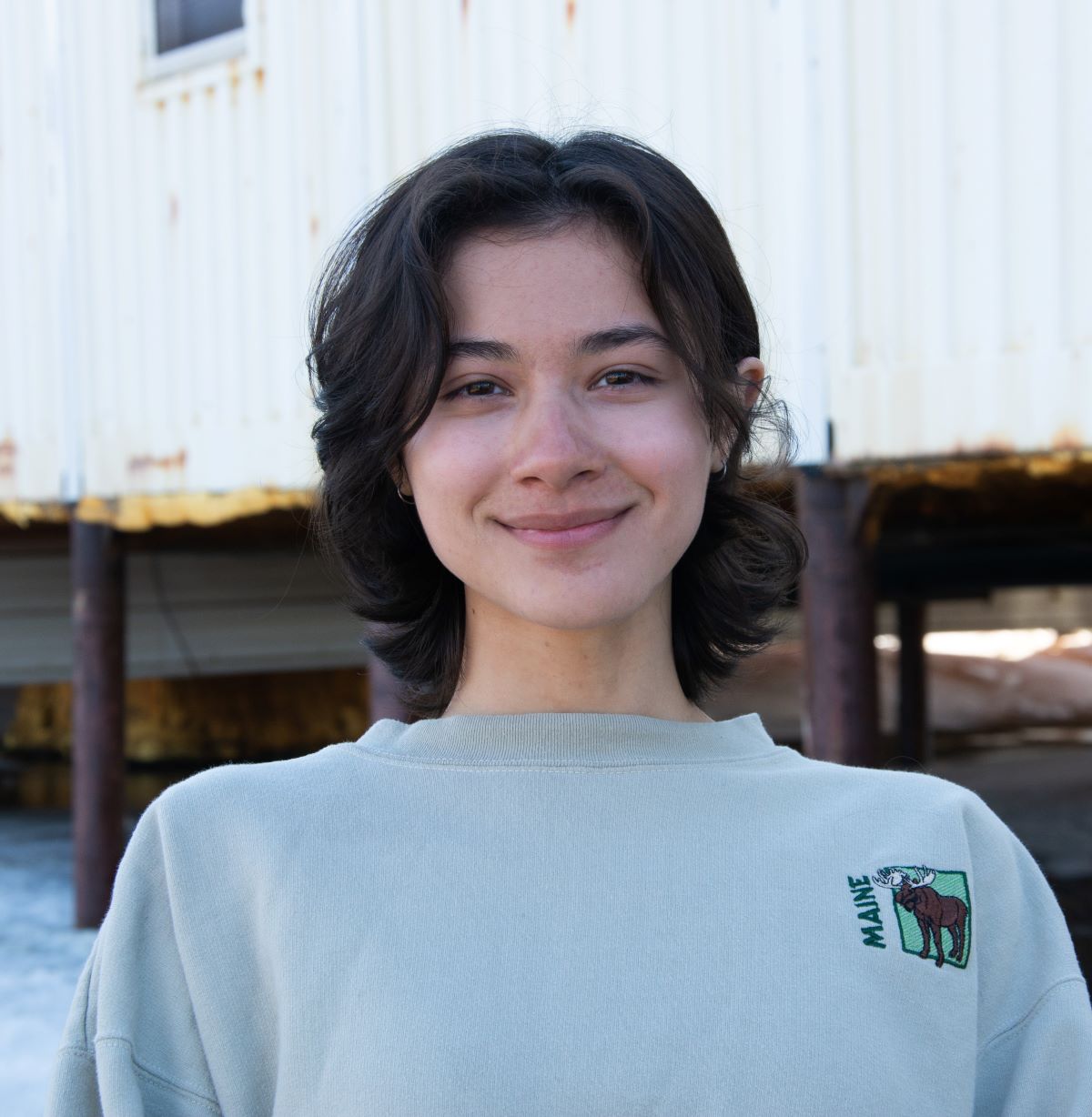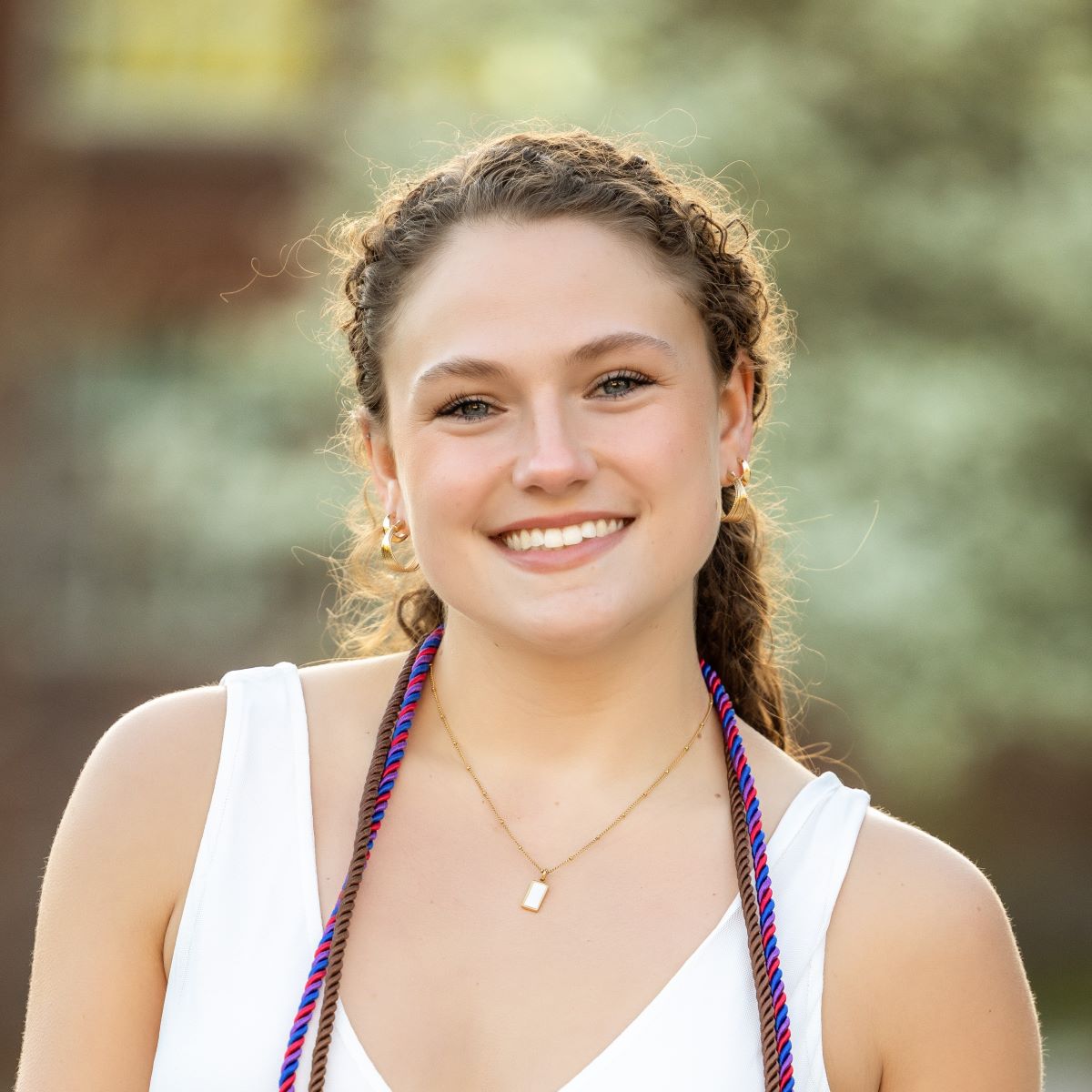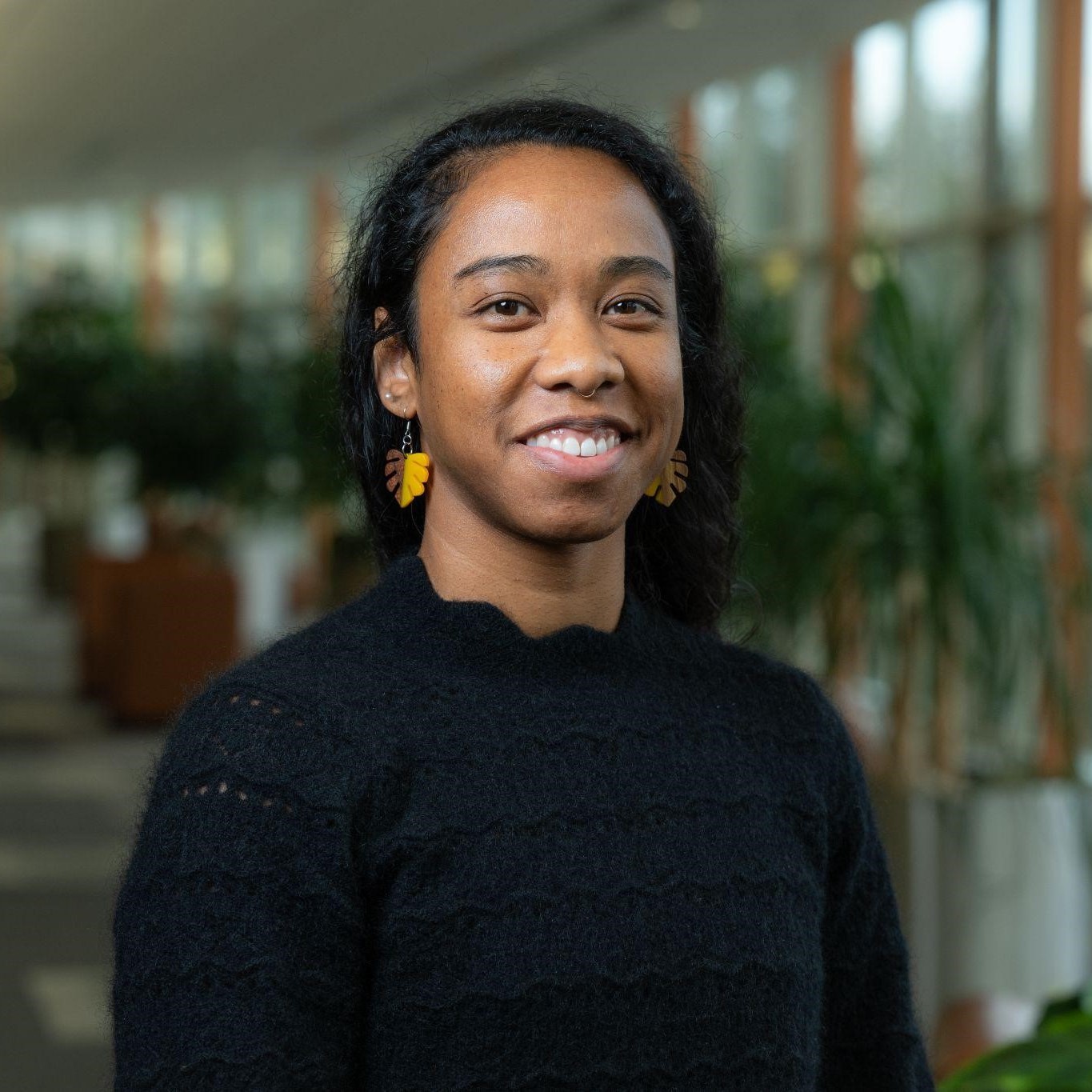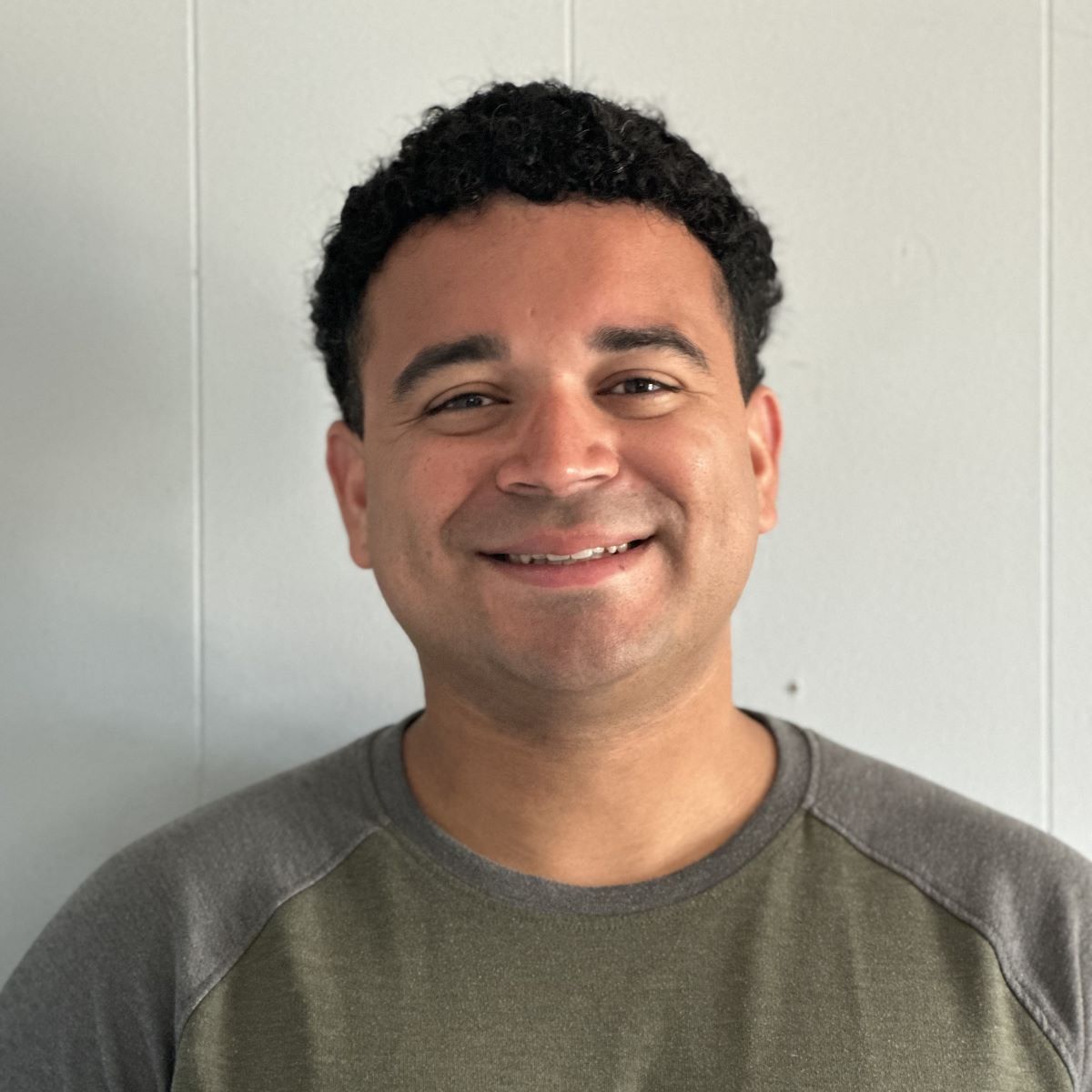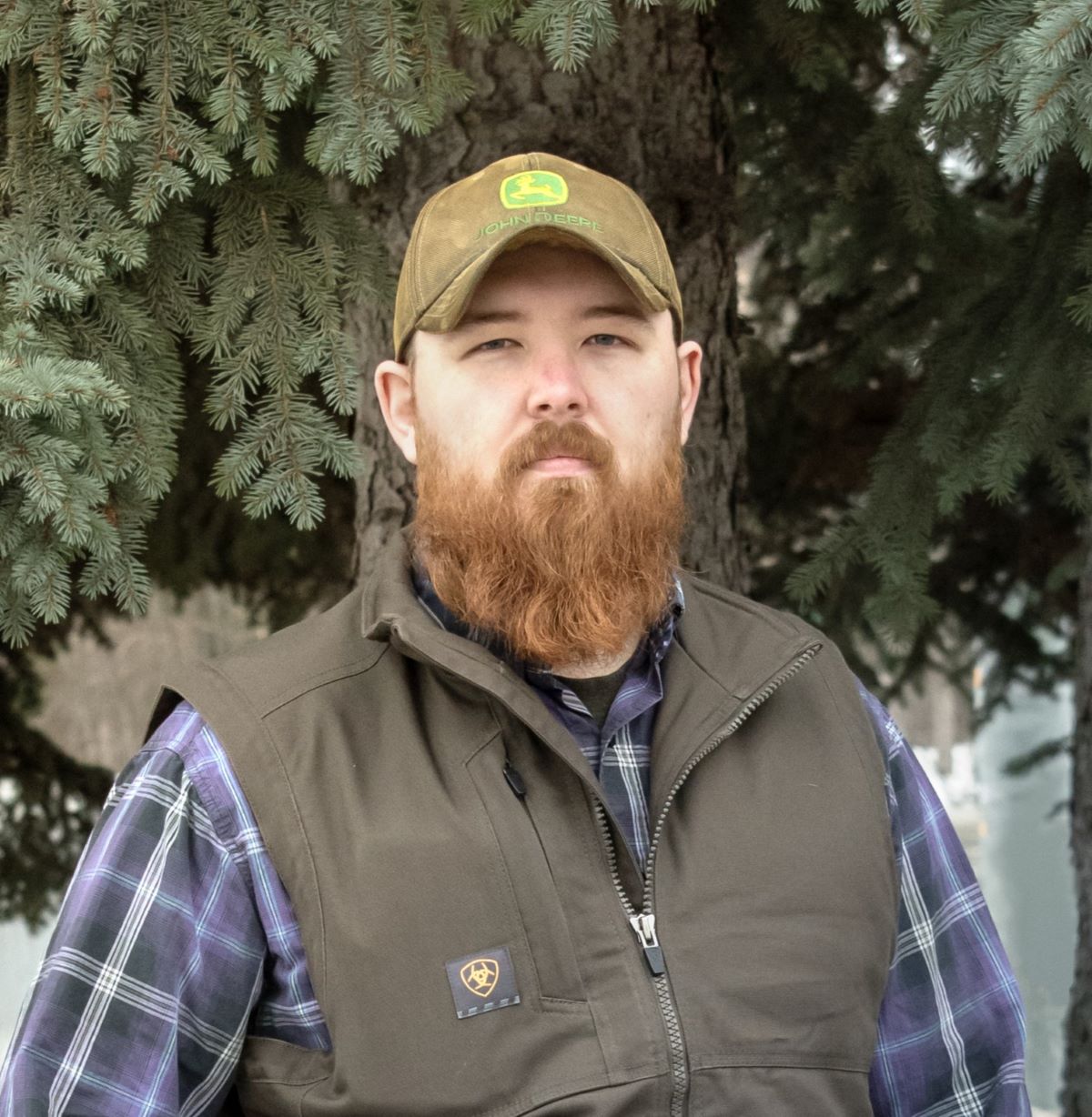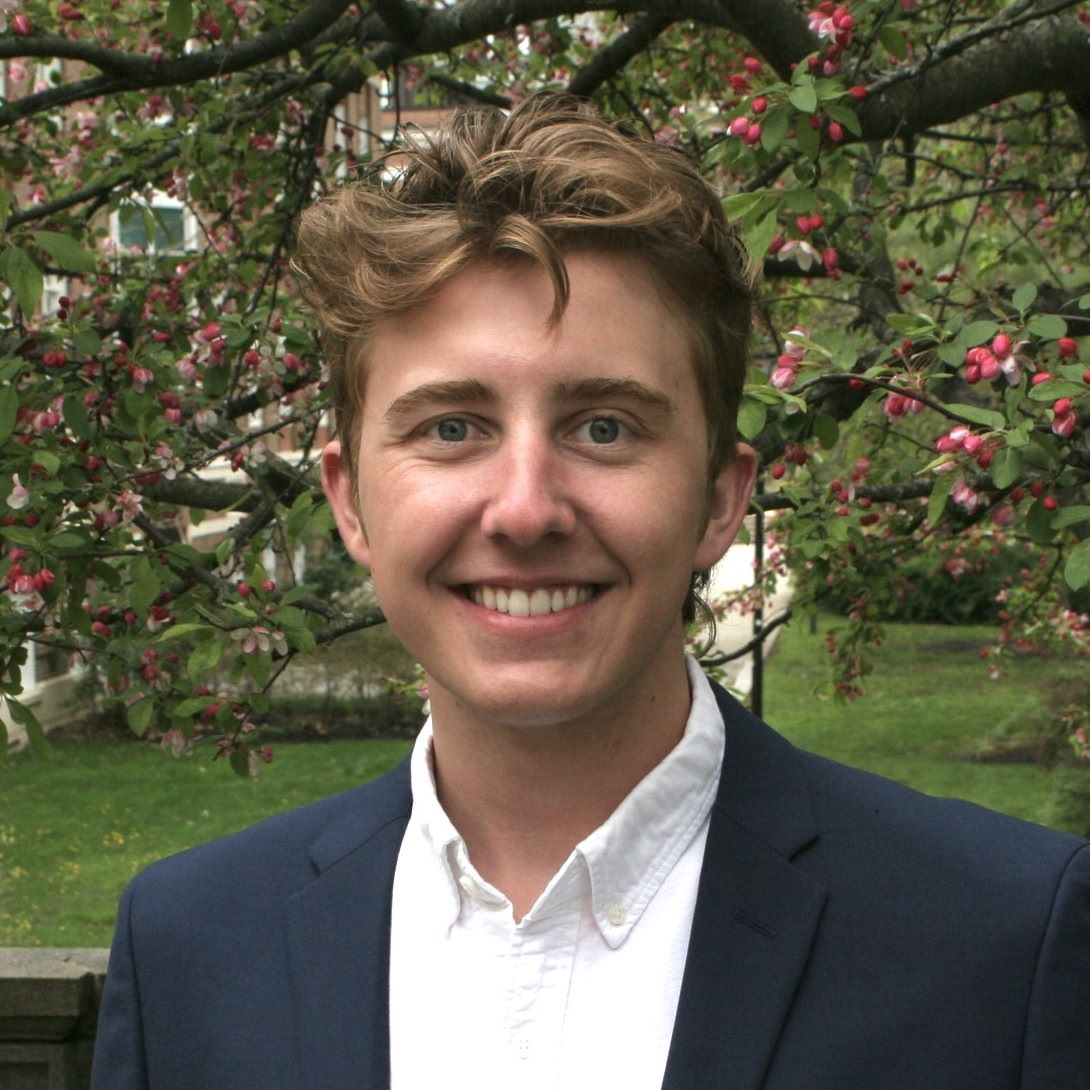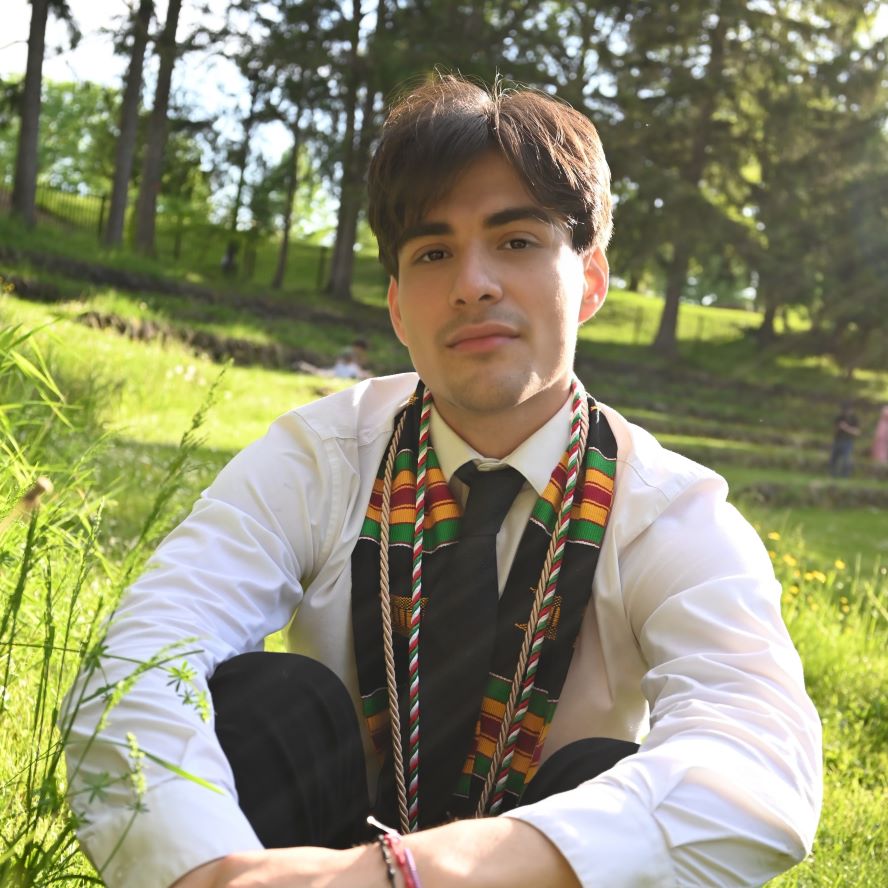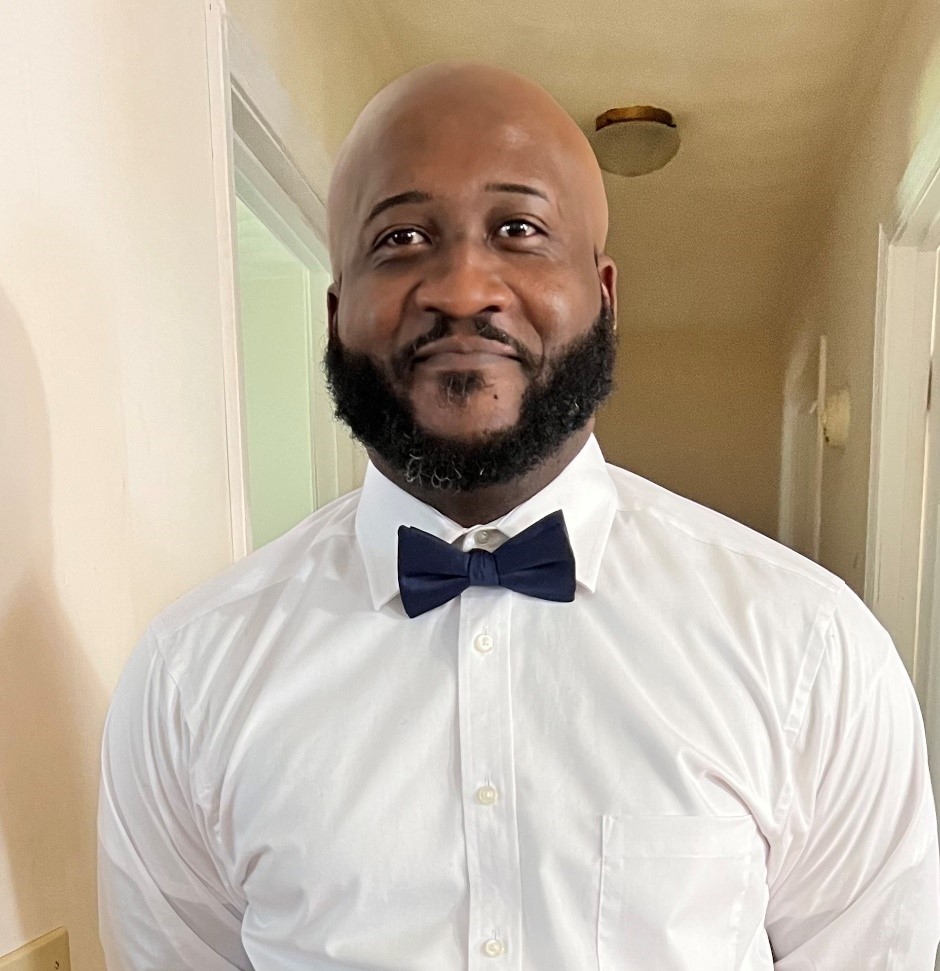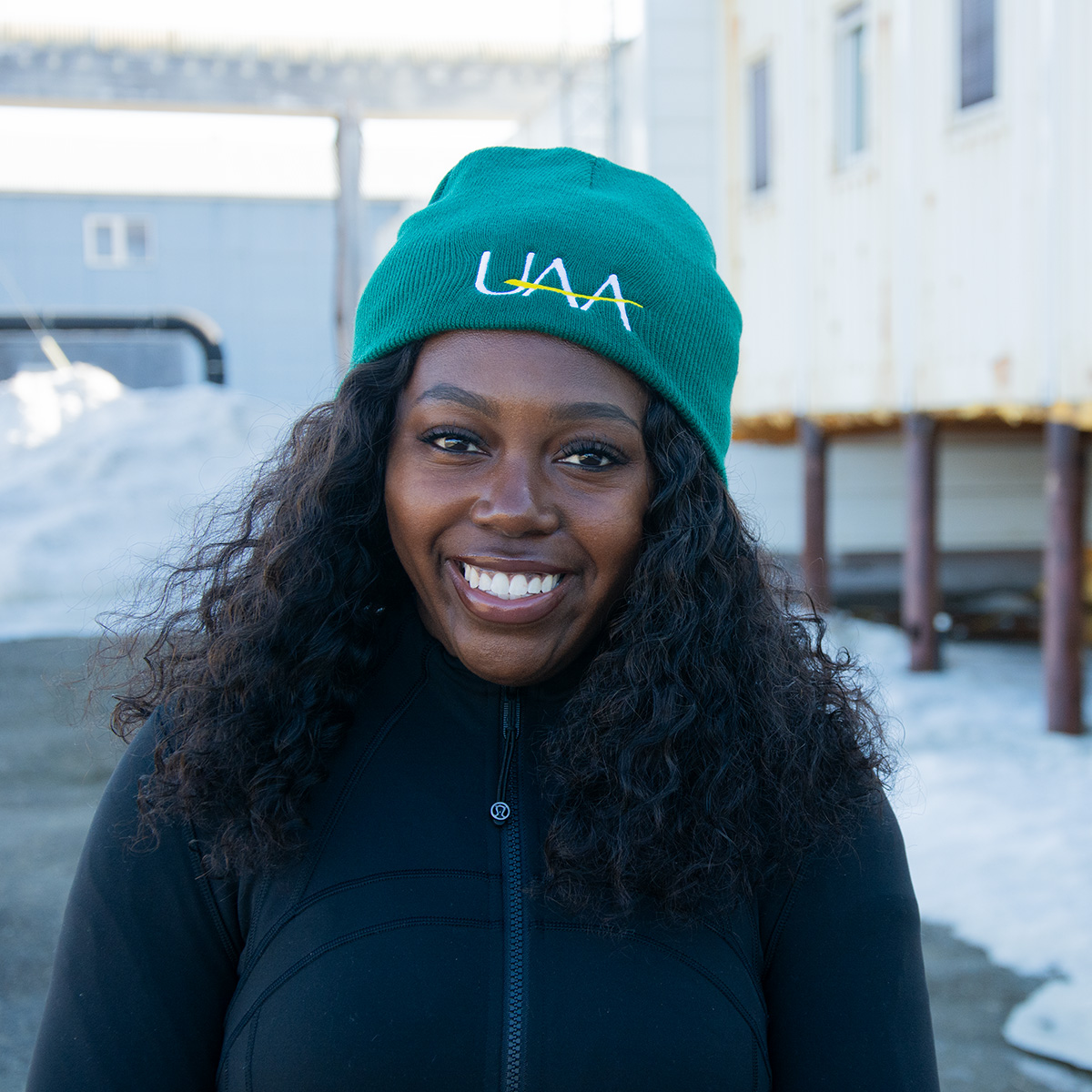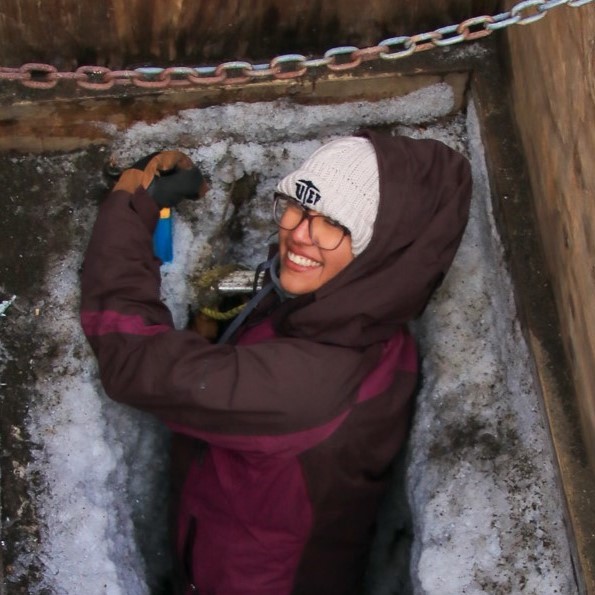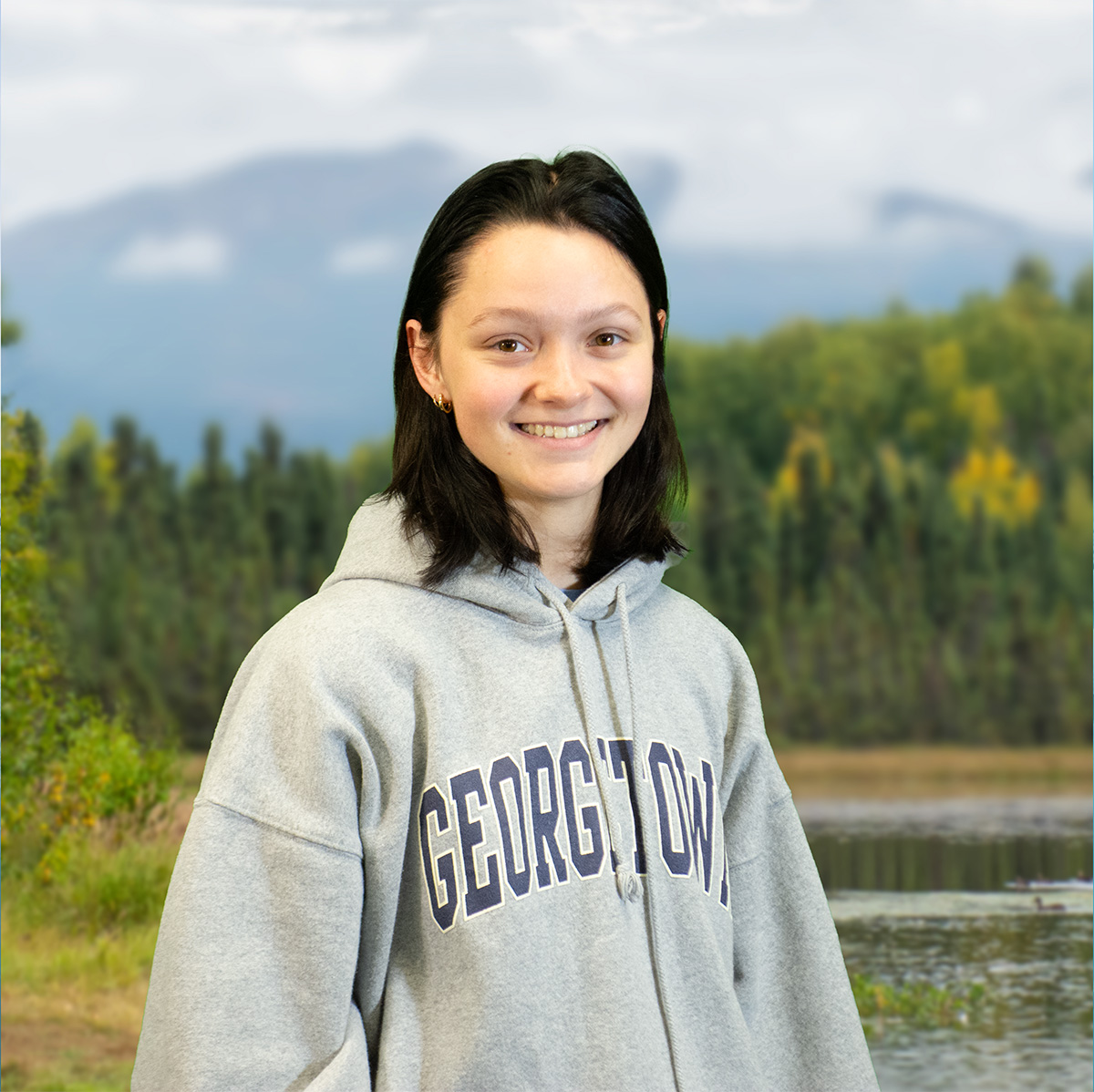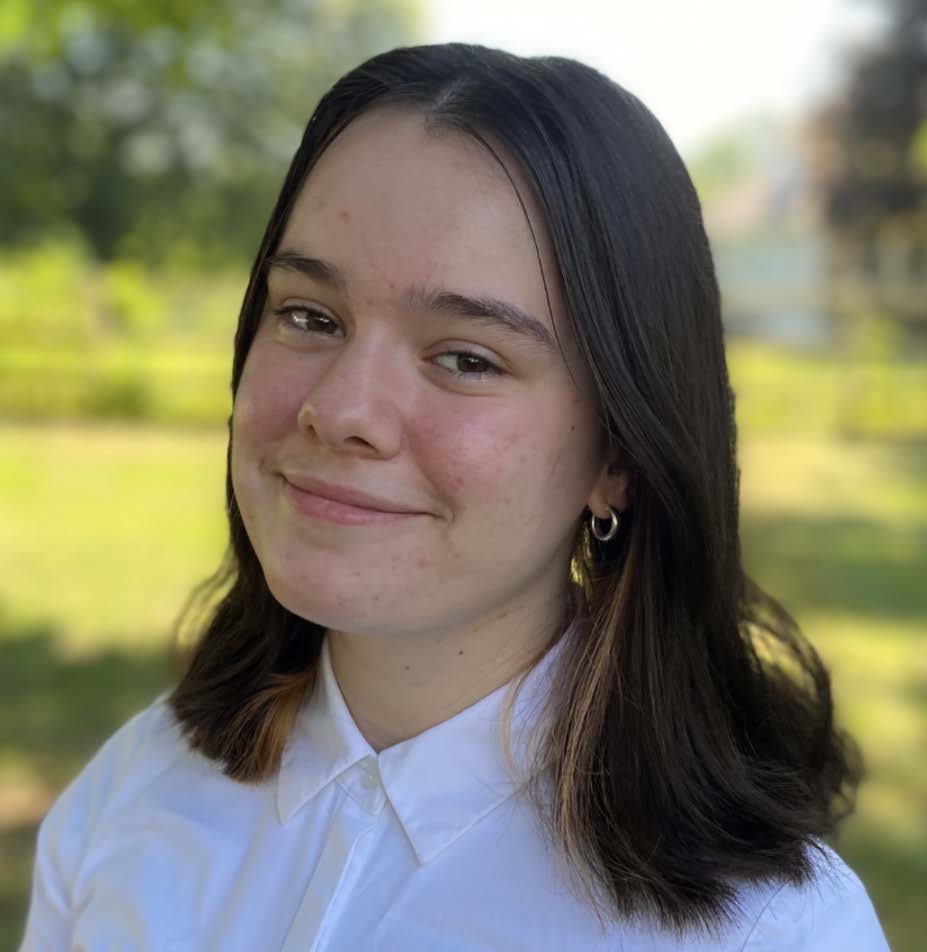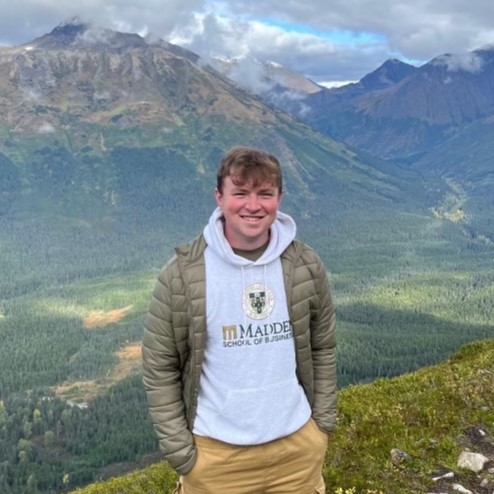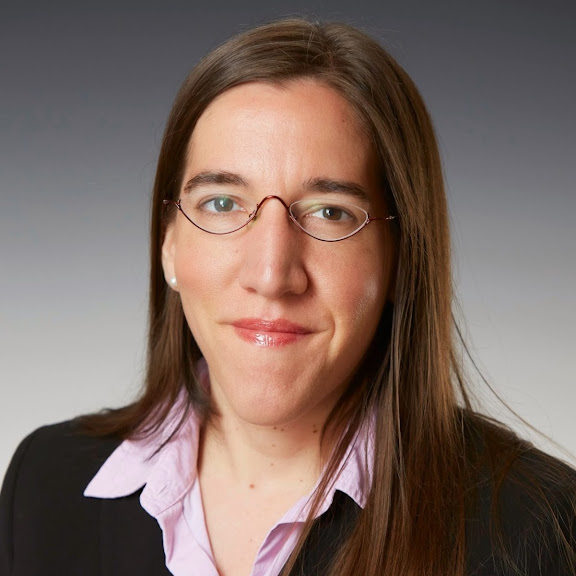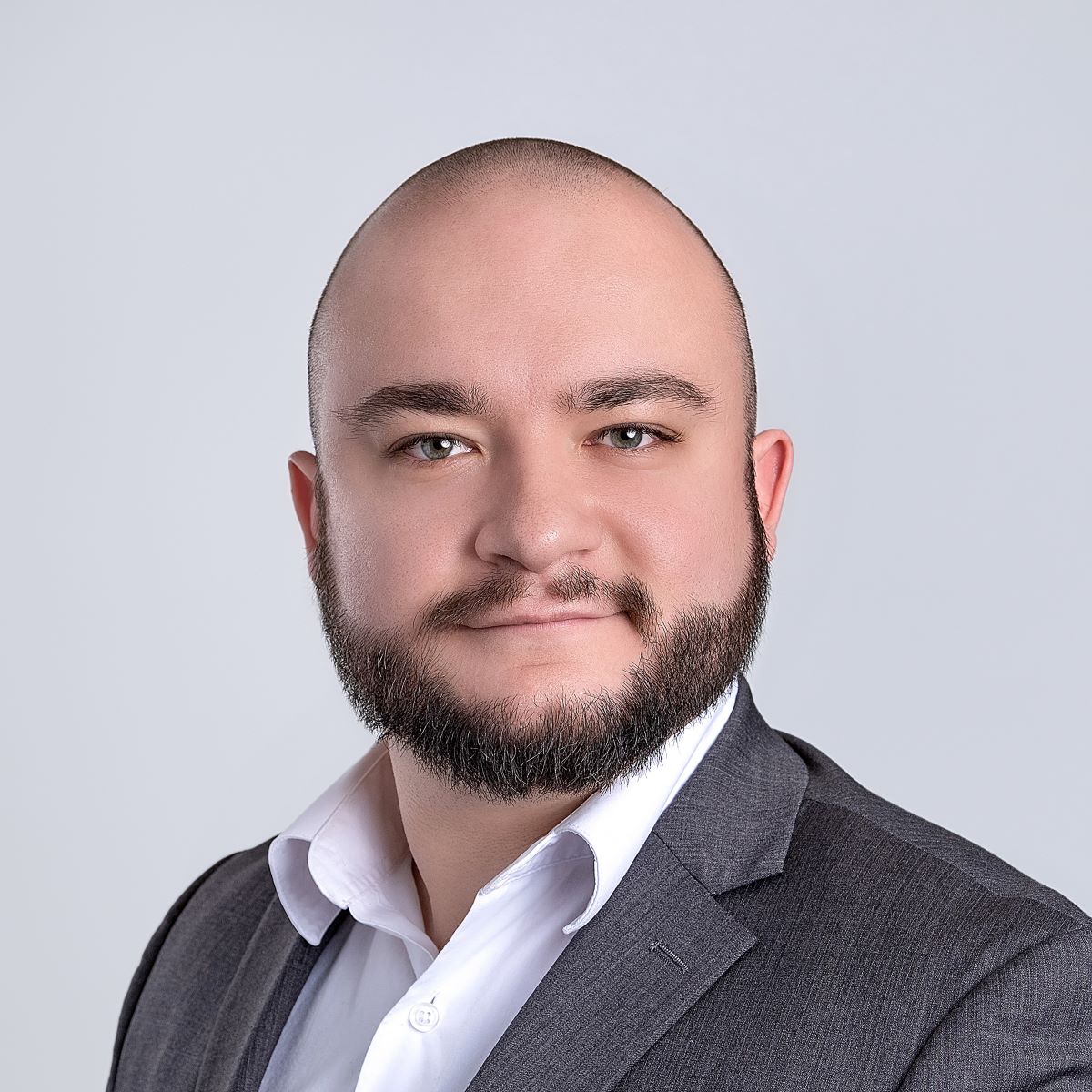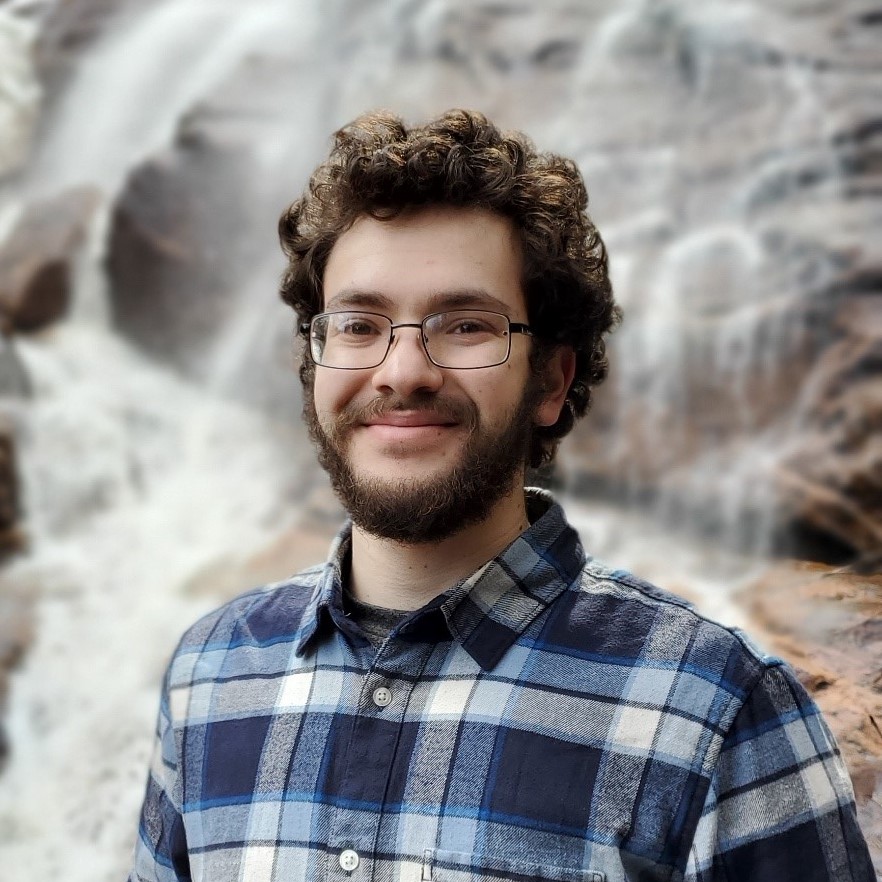Fellows
ASIP Fellows
The following fellows are part of the Arctic Summer Internship Program, an AERC-affiliated initiative that brings students to Alaska for 10 weeks of hands-on research. ASIP fellows engage with projects that support the mission of ADAC-ARCTIC, a Department of Homeland Security Center of Excellence and a partner research center of AERC. The following students participate in ASIP through independent support from their home institutions, the US Coast Guard Academy and US Naval Academy.
Elise Beauchemin
US Coast Guard Academy
- Bio
Elise Beauchemin was born and raised in New Hampshire and is an avid fan of snow and backcountry skiing. She studies marine environmental science at the US Coast Guard Academy, concentrating in marine biology and geospatial intelligence. Her capstone research analyzes maritime activity in the North Pacific Arctic, with prior undergraduate research involving microplastics. In the summers of 2021 and 2023, she studied sustainable fisheries management and marine invasive species at the Shoals Marine Lab in the Gulf of Maine. Following graduation and commissioning as an officer in the US Coast Guard in 2025, Elise hopes to be stationed as a Deck Watch Officer on the icebreaker USCGC Healy or a buoy tender out of Alaska. Long term, she plans to attend graduate school and pursue Arctic research. Passionate about the environmental impacts on the Arctic and conserving its unique ecosystem, Elise is honored to be one of two USCGA Center for Arctic Study and Policy interns at AERC-ADAC.
Elise is participating in the 2024 Arctic Summer Internship Program.
Micaela DeGennaro
US Coast Guard Academy
- Bio
Micaela DeGennaro is a student from Hillsborough, North Carolina currently pursuing a degree in marine and environmental science, with concentrations in physical oceanography and geospatial intelligence, from the United States Coast Guard Academy. Upon graduating in 2025, she will commission into the US Coast Guard. She hopes to serve as a deck watch officer on a Coast Guard Icebreaker or Coast Guard cutter patrolling the Pacific. Long-term, Micaela would like to pursue a career in environmental and marine science with an emphasis on field work.
Micaela is participating in the 2024 Arctic Summer Internship Program.
Matthew Croddy
US Naval Academy
- Bio
Matthew Croddy was born and raised in Indianapolis, Indiana. He is currently entering his fourth year at the United States Naval Academy where he plays volleyball and expects to graduate in May 2025. He is studying to obtain a bachelor’s degree in ocean and atmospheric sciences and plans on entering the METOC(Meteorological/Oceanographic) community of the United States Navy after graduation. Matthew completed a NOLS mountaineering course in Alaska the previous summer and can't wait to be back up there this summer.
Matthew is participating in the 2024 Arctic Summer Internship Program.
Edward Sundberg
US Naval Academy
- Bio
Edward Sundberg is a third-year student at the US Naval Academy, where he is studying oceanography. After graduating in 2026, he will commission as an officer in the US Navy.
Edward is participating in the 2024 Arctic Summer Internship Program.
Scientific Leadership Award
The Department of Homeland Security (DHS) Science and Technology Directorate awarded funding to eight Minority Serving Institutions (MSIs) in 2023, including University of Alaska Anchorage. The following fellows are part of Alaska's PARTE (Program for Arctic Research, Training, and Education) and will engage in research relevant to the complex challenges faced by DHS in the Arctic.
Acknowledgement: This material is based upon work supported by the U.S. Department of Homeland Security under Grant Award Numbers, Award Nu 23STSLA00018-01.
Disclaimer: The views and conclusions contained in this document are those of the authors and should not be interpreted as necessarily representing the official policies, either expressed or implied, of the U.S. Department of Homeland Security.
Brynn Amatulli
University at Buffalo
- Bio
Brynn Amatulli is a first-year student from Long Island, New York. She studies industrial engineering at the University at Buffalo. Her fellowship project involves working with fellow University at Buffalo students on a research project in partnership with the Department of Homeland Security. She is assisting her research team on the first stage of the research, which includes completing a literature review to gain a robust knowledge on homeland security in the Arctic, in preparation for the next task of developing game theoretical models.
Sara Berg
University of New Hampshire
- Bio
Sara Berg is an accelerated master’s student from Southborough, Massachusetts. She graduated with Honors from the University of New Hampshire (UNH) in May 2024 and will continue pursuing a master’s in environmental engineering in June 2024, also at UNH. As an undergraduate, Sara was involved in oil spill response and restoration at the Coastal Response Research Center (CRRC) and greenhouse gas accounting at the UNH Sustainability Institute. As an SLA Fellow, she will continue precision and accuracy testing of a commercial-off-the-shelf (COTS) acoustic sensor (AQUAscat 1000R) in detecting oil slick thicknesses. Here analysis includes testing different oil types, detecting oil under ice, and measuring sound speed and density of oil at different temperatures. These findings will be reported to the US Coast Guard responders regarding the potential use of remotely operated vehicle (ROV) and autonomous underwater vehicle (AUV) mounted COTS acoustic sensors for determining slick thicknesses during oil spills. Sara is participating in the 2024 Arctic Summer Internship Program.
Bernice Nisbett
University of Alaska Anchorage
- Bio
Bernice Nisbett was born in Puerto Rico and raised in Kodiak. She attended Linfield College in McMinnville, Oregon and completed a religious studies bachelor’s degree before moving to South Korea to teach English for two years. She also has master’s degree in intercultural relations and counseling psychology and became a licensed professional counselor (LPC) in 2022. She worked as a therapist for two years before going back to school (for the last time) to complete a doctorate in clinical-community psychology with an emphasis in rural and Indigenous studies at University of Alaska Anchorage (UAA). Bernice is currently in her third year of the doctoral program. Her lifelong goal is to research ways to provide better access to sustainable, effective, and culturally congruent mental and behavioral health services for rural, Indigenous, geographically isolated, and historically marginalized communities. For her fellowship, Bernice is researching resiliency within the context of emergency response efforts and its intersections with federal government and Tribal health organizations.
Bernice is participating in the 2024 Arctic Summer Internship Program.
Angel Reyes
University of Alaska Anchorage
- Bio
Angel Reyes was born in the Dominican Republic and came to the United States around six years old, mainly living in Pittsburgh, Pennsylvania. He joined the Air Force at eighteen and traveled to Alaska on orders from the military. He later transferred to the Alaska Air National Guard and became a loadmaster. He is currently pursuing a master’s degree in project management at University of Alaska Anchorage (UAA). His fellowship uses virtual reality technology to imitate disaster scenarios specific to the Arctic region to prepare users for quicker action and mitigation of damage in the event that these scenarios occur. He hopes to integrate his fellowship work, civilian career, and military experience to provide expertise for larger organizations that make an impact in the community. He hopes the fellowship leads to larger, lasting changes that will be beneficial to his community.
Angel participated in the 2023 Arctic Summer Internship Program.
Francisco Santiago
Johnson C. Smith University
- Bio
Originally from Ponce, Puerto Rico, Francisco Santiago moved during the summer of 2021 to Charlotte, North Carolina to attend Johnson C. Smith University. He will graduate in December 2024 with a bachelor’s in computer science and a minor in cyber security. After graduation, he plans to attend graduate school and hopes his SLA Fellowship will direct his future academic path. His research project involves cyber security and resilience in telecommunication infrastructures in the Arctic zone, which he hopes will affect plans to attend graduate school. Francsico also has an associate degree in industrial engineering.
Francisco is participating in the 2024 Arctic Summer Internship Program.
Walt Weidman
University of Alaska Anchorage
- Bio
Walt Weidman is an undergraduate student at the University of Alaska Anchorage (UAA) with a focus in mechanical engineering. He joined the US Air Force after high school and served 12 years, honing skills in trauma medicine, education, and leadership. His long-term career goal is to obtain a master’s or doctorate in mechanical engineering and pursue a research career. His SLA project is part of Precipitating Change, a coastal erosion research project that seeks to bridge Indigenous knowledge and western science with a multi-perspective instructional approach. The goal is to teach middle school students about coastal science and erosion through the students’ unique understanding of their culture and Indigenous science without asking them to abandon or devalue their cultural perspective.
James Wood
University of New Hampshire
- Bio
James Wood is an environmental engineering student from Kirby, Vermont. He graduated from the University of New Hampshire (UNH) in May 2024 and is attending graduate school at UNH for his Master of Science in environmental engineering beginning in June 2024. He focused on oil spill response as an undergraduate, beginning with his work through the Coastal Response Research Center. His previous work has developed a protocol for visualizing oil mobility from an under-ice cavity using a recirculating flume. His fellowship project will continue modeling environmental conditions that impact the movement of oil under ice for further refinement of oil spill trajectory models.
James is participating in the 2024 Arctic Summer Internship Program.
Irwing Vielma-Rodriguez
Le Moyne College
- Bio
Irwing Vielma-Rodriguez is a graduate student, researcher and computer science professional. He graduated with a B.S. in computer science from Le Moyne College in Syracuse, New York and is currently pursuing an M.S. in information systems at Le Moyne, with a concentration in artificial intelligence. As an undergraduate, Irwing served as an Honors in Information Systems Principal Investigator and McDevitt Information Systems Research Fellow and led a multidisciplinary team of four students investigating virtual reality meditation in college stress reduction. In 2023, he was awarded a McNair Research Fellowship at Clarkson University and served as a robotics engineer researcher. He plans to begin doctoral work in Fall 2025.
Irwing is participating in the 2024 Arctic Summer Internship Program.
Marco Wall
Stanly Community College
- Bio
Marco Wall, from Norwood, North Carolina, is a graphic design artist, father of three, and a cyber security student at Stanly Community College in North Carolina. He will graduate in 2025 and plans to attend a four-year school, eventually obtaining a master's degree in cyber security and a career with a government agency. In the Fellowship program, Marco will work on protecting communication infrastructure in the Arctic from cyber-attacks. His role is to research existing infrastructure, study data to find weaknesses, and help build solutions.
Victoria Gary
Tuskegee University
- Bio
Victoria Gary is a third-year student at Tuskegee University, majoring in animal science. Originally from Atlanta, Georgia, she's maintained a spot on the Dean's List four consecutive semesters. She is a member of her university's pre-veterinary medical scholars program, participates in Students in Animal Care and Rescue, and plans to pursue a doctorate in veterinary medicine after graduation.
Victoria participated in the 2024 Arctic Summer Internship Program.
Victoria Villagomez
University of Texas at El Paso
- Bio
Victoria Villagomez is pursuing a Bachelor's of Science in environmental science with a focus in geology with a minor in computer science at the University of Texas at El Paso (UTEP). From her hometown of El Paso, Victoria grew up with a unique perspective on international relations on environmental issues. After attending graduate school and obtaining her Ph.D., she hopes to ultimately work in the science-based side of environmental policy with organizations such as the Environmental Protection Agency or NASA. Currently, Victoria is an undergraduate researcher at the Systems Ecology Lab at UTEP where she collaborates and contributes to phenological studies of the Arctic tundra in Utqiaġvik, Alaska. Her fellowship project includes exploring and developing uses of alternate color spaces from the time lapse photography to track phenological changes more precisely using computer vision.
Victoria participated in the 2023 Arctic Summer Internship Program.
ADAC-ARCTIC Fellows
The following fellows are funded by ADAC-ARCTIC, a DHS Center of Excellence (COE) and a partner research center of AERC. The fellowship program engages student interns with DHS COE projects providing them with technical and professional development experiences during the academic year, and a 10-week internship during the summer. The fellowship is open to undergraduate, graduate, and advanced graduate students. The program specifically engages with Minority-Serving (MSI) and Significant Minority Enrollment (SME) and Title III waiver institutions. Selected Fellows meet GPA requirements, are US Citizens enrolled in STEM, and commit to employment with HSE or related agencies after graduation.
Heather Duell
University at Buffalo
- Bio
Heather Duell is a student from Rochester, New York. She plans to graduate in 2027 from the University at Buffalo with a bachelor's degree in industrial engineering. Her fellowship project involves working with fellow University at Buffalo students on an Arctic strategy research project in partnership with the Department of Homeland Security.
Madeline DuBosque
University of New Hampshire
- Bio
Madeline DuBosque is a student from Greenland, New Hampshire. She is currently studying environmental engineering at the University of New Hampshire (UNH) and expects to graduate in 2026. Madeline began working as a lab assistant in the Coastal Response Research Center at UNH in September 2023. Her long-term career interests involve disaster response and recovery, including performing research in these areas. She hopes to support and protect people, wildlife, and habitats from the effects of natural disasters. Madeline’s fellowship project is the Climate Assessment and Proactive Resilience Initiative (CAPRI), where she performs literary research and data collection, attends stakeholder meetings, and assists her project PI overall.
Jimmy McGarvey
Le Moyne College
- Bio
James (Jimmy) McGarvey is a graduate student and researcher who graduated with a B.S. in information systems and business analytics from Le Moyne College in Syracuse, New York. He is currently pursuing his M.S. in information systems at Le Moyne.
As an undergraduate honors student, Jimmy developed a systems architecture integrating drone swarms with communication and network sensors and augmented reality for Arctic search and rescue applications; his research resulted in a patent application with Dr. Martha Grabowski. Jimmy recently completed a graduate thesis evaluating oil shipping volumes in the Arctic and Western Alaska. His ADAC-ARCTIC fellowship focuses on developing risk indices to assist the US Coast Guard in evaluating risks and inspection priorities for Arctic oil tank facilities.
Gwendolyn Morgan
Rensselaer Polytechnic Institute
- Bio
Gwendolyn Morgan is pursuing a Ph.D. in cognitive science at Rensselaer Polytechnic Institute with a focus on human factors, cognitive science, HCI and AI. Morgan is a successful researcher, proposal writer, grant writer, photographer, artist, and lecturer with a passion for the Arctic, sustainability, resilience, information systems, human factors, and cognitive science. She holds multiple degrees, including an M.B.A. in Business Administration, M.F.A. in Film and Digital Media and a B.A. in English and History. Morgan is also a Federal Aviation Administration Part 107 Certified Commercial UAS Pilot. Currently, she is conducting research on the impacts of uncrewed aerial systems on operator and system performance, processes, and perceptions in Arctic safety-critical systems. Her project for the ADAC-ARCTIC fellowship will include developing a model and empirical results that can contribute to improved understanding of DHS human and system performance capabilities in Arctic missions such as oil spill response, oil tank inspection, or search and rescue.
Cole Robinson
University of New Hampshire
- Bio
Cole Robinson is an undergraduate student from Bow, New Hampshire. He is dual majoring in homeland security and justice studies at University of New Hampshire and expects to graduate in 2026. Cole’s long-term career interests include environmental security, homeland security, and emergency management. His fellowship project will consist of attending and/or presenting a project at a school or external conference.
Ian Unson
University at Buffalo
- Bio
Ian Unson is a third-year Ph.D. candidate in industrial engineering at the University at Buffalo. He is originally from Rochester, New York. Ian aims to remain in academia after completing his Ph.D. and hopes to teach as a professor and continue his research in homeland security, operations research, and game theory. Ian works under the guidance of Dr. Jun Zhuang as their team attempts to address the problems exacerbated by the Arctic's profound transformations due to climate change, manifesting in challenges encompassing environmental, social, and cultural realms. Within the research tasks of this group, Ian will aid in the development of game-theoretic models to study optimal partnership formation and resource allocation strategies among the U.S. Arctic security stakeholders. These models will offer actionable insights to assist decision-making as it relates to securing the Arctic homeland against strategic adversarial threats and non-strategic threats such as climate change and natural hazards.
Sam Zarakovich
University of New Hampshire
- Bio
Sam Zarakovich is a student and research assistant from Thornton, New Hampshire. He graduated from University of New Hampshire (UNH) in May 2024 with bachelor’s degrees in homeland security and justice studies. As a fellow, Sam will focus on Alaska’s existing infrastructure and explore options for emergency response frameworks. After the fellowship, he will enroll in the UNH Franklin Pierce School of Law in the fall and expect to graduate in 2027. Sam is participating in the 2024 Arctic Summer Internship Program.











